Discover Throughline
Throughline

Throughline
Author: NPR
Subscribed: 67,976Played: 3,213,286Subscribe
Share
© Copyright 2019-2021 NPR - For Personal Use Only
Description
Throughline is a time machine. Each episode, we travel beyond the headlines to answer the question, "How did we get here?" We use sound and stories to bring history to life and put you into the middle of it. From ancient civilizations to forgotten figures, we take you directly to the moments that shaped our world. Throughline is hosted by Peabody Award-winning journalists Rund Abdelfatah and Ramtin Arablouei.
Subscribe to Throughline+. You'll be supporting the history-reframing, perspective-shifting, time-warping stories you can't get enough of - and you'll unlock access bonus episodes and sponsor-free listening. Learn more at plus.npr.org/throughline
Subscribe to Throughline+. You'll be supporting the history-reframing, perspective-shifting, time-warping stories you can't get enough of - and you'll unlock access bonus episodes and sponsor-free listening. Learn more at plus.npr.org/throughline
381 Episodes
Reverse
Stuck in traffic? Glued to your desk chair? Folding yet another pile of your kids’ laundry? We GOT you!! Take a break, turn up the volume, and shake it out with this special episode of Throughline, a tribute to dance music, all songs composed by our very own Ramtin Arablouei.To access bonus episodes and listen to Throughline sponsor-free, subscribe to Throughline+ via Apple Podcasts or at plus.npr.org/throughline.Learn more about sponsor message choices: podcastchoices.com/adchoicesNPR Privacy Policy
What powers the global internet? The answer might surprise you: not satellites, but hundreds of thin cables that run along the ocean floor. They’re an absolutely essential technology that’s also incredibly fragile — so fragile that in the beginning, most people thought they couldn't possibly work. Today on the show: the story of a man who did think they could work… and the lengths he went to to try and connect the world.Guests:Bill Burns, former BBC broadcast engineer and founder of atlantic-cable.com Cyrus Field IV, great-great-grandson of Cyrus FieldAllison Marsh, professor at the University of South Carolina and historian of technology Ben Roberts, strategic advisor on Subsea Cable Economics for Connectivity at UNICEF who has been building cable network in Africa for the past two decadesTo access bonus episodes and listen to Throughline sponsor-free, subscribe to Throughline+ via Apple Podcasts or at plus.npr.org/throughline.Learn more about sponsor message choices: podcastchoices.com/adchoicesNPR Privacy Policy
Israel and Hamas have agreed to a plan to end fighting in Gaza, just over two years after the Hamas-led attack on Israel on October 7th, 2023 and Israel’s subsequent bombardment and invasion of Gaza. As we wait to see what happens next, we’re revisiting our episodes looking at the history of major players on both sides of the conflict. Last week, we looked at the history of Hamas; if you missed that, go back and check it out. This week, we’re bringing you the story of the rise of right wing politics in Israel and President Benjamin Netanyahu’s political career. This episode first ran in 2024.Guests: Amjad Iraqi, senior analyst for Israel/Palestine at the International Crisis Group and former senior editor at +972 Magazine. Natasha Roth-Rowland, historian and director of research and analysis at Diaspora Alliance, an international organization that combats antisemitism. Sara Yael Hirschhorn, historian,visiting professor at the University of Haifa and fellow at the Jewish People Policy Institute.To access bonus episodes and listen to Throughline sponsor-free, subscribe to Throughline+ via Apple Podcasts or at plus.npr.org/throughline.Learn more about sponsor message choices: podcastchoices.com/adchoicesNPR Privacy Policy
With peace talks once again underway between Israel and Hamas, and hopes again growing for a permanent ceasefire, we’re bringing you our episode on the origins of Hamas: where it came from, how its influence grew, and what it represents. Next week, our episode on Benjamin Netanyahu and the rise of Israel’s right wing. This episode first ran in November 2023.We've done episodes on Hamas, Israel, Lebanon, Iran, and more. Find them all in our series, "The Cycle".To access bonus episodes and listen to Throughline sponsor-free, subscribe to Throughline+ via Apple Podcasts or at plus.npr.org/throughline.Learn more about sponsor message choices: podcastchoices.com/adchoicesNPR Privacy Policy
Journalism is under unprecedented threat worldwide. At least 220 journalists have been killed in Gaza alone since the October 7th, 2023 Hamas-led attack on Israel; the Committee to Protect Journalists says it’s the deadliest conflict for journalists the group has ever documented. In conflicts around the world, it’s war reporters who write the first draft of history. But getting to the front lines, finding the truth, and reporting it is easier said than done. Today on the show: war reporters, and what’s at stake if they can’t do their jobs.To access bonus episodes and listen to Throughline sponsor-free, subscribe to Throughline+ via Apple Podcasts or at plus.npr.org/throughline.Learn more about sponsor message choices: podcastchoices.com/adchoicesNPR Privacy Policy
Life can be tough. Every day brings new challenges. And in order to get through the waking hours we need rest. Good quality sleep. In this bonus episode, a companion to our episode "The Way We Dream," we offer you a 30-minute audio journey into the deep. A smooth trip into the place where our minds are free from the confines of our self awareness, our dreams. This episode originally published in January 2022.To access bonus episodes and listen to Throughline sponsor-free, subscribe to Throughline+ via Apple Podcasts or at plus.npr.org/throughline.Learn more about sponsor message choices: podcastchoices.com/adchoicesNPR Privacy Policy
The alleged link between vaccines and autism is back in the news this week, being regularly speculated on by both President Trump and Health and Human Services secretary Robert F. Kennedy Jr. The claim has been repeatedly disproven: there is no evidence that vaccines and autism are related. But the myth is powerful. In this episode: the roots of the modern anti-vaccine movement, and of the fears that still fuel it – from a botched polio vaccine, to the discredited autism study, to today. This episode originally published in February 2025. Guests:Paul Offit, director of the Vaccine Education Center at the Children's Hospital of Philadelphia, and a professor of pediatrics at the University of Pennsylvania School of MedicineElena Conis, historian of medicine and public health and a professor in journalism and history at the University of California, BerkeleyArthur Allen, senior correspondent for nonprofit KFF Health News and author of Vaccine: The Controversial Story of Medicine's Greatest LifesaverTo access bonus episodes and listen to Throughline sponsor-free, subscribe to Throughline+ via Apple Podcasts or at plus.npr.org/throughline.Learn more about sponsor message choices: podcastchoices.com/adchoicesNPR Privacy Policy
The U.S. immigration detention system is spread out across federal facilities, private prisons, state prisons, and county jails. It’s grown under both Democratic and Republican presidents. And it’s been offered up as a source of revenue for over a century, beginning with the first contracts between the federal government and sheriffs along the Canadian border.Guests:Brianna Nofil, assistant professor of history at The College of William and Mary author of The Migrant's Jail: An American History of Mass IncarcerationTo access bonus episodes and listen to Throughline sponsor-free, subscribe to Throughline+ via Apple Podcasts or at plus.npr.org/throughline.Love podcasts? For handpicked recommendations every Friday, subscribe to NPR’s Pod Club here.If you want to learn more about the history of Cuban migration to the U.S. and the Mariel Boatlift, check out season 2 of White Lies.Learn more about sponsor message choices: podcastchoices.com/adchoicesNPR Privacy Policy
The U.S. - Mexico border, according to a video on the official White House website, is very quiet: nothing but tires crunching on gravel and the wind whistling around a high, solid-looking wall. But that's not the whole story. Today on the show, how that border went from a line in the sand, to a fence, to a wall.Guests:Rachel St. John, associate professor of history at U.C. Davis, and author of Line in the Sand: A History of the Western US Mexico BorderMiguel Levario, associate professor of history at Texas Tech University and author of Militarizing the Border: When Mexicans Became the EnemySilvestre Reyes, former Congressman (D-TX), and former Border Patrol Sector Chief Eduardo Contreras, realtor in Brownsville, TexasTo access bonus episodes and listen to Throughline sponsor-free, subscribe to Throughline+ via Apple Podcasts or at plus.npr.org/throughline.Learn more about sponsor message choices: podcastchoices.com/adchoicesNPR Privacy Policy
What is ICE? What was it created to do? And what’s changed in 2025? Today on the show, the history of Immigration and Customs Enforcement and how it tracks the story of immigration, and politics, in the U.S.Guests:Peter Markowitz, professor at Cardozo School of Law in New York City and founder of the Kathryn O. Greenberg Immigration Justice Clinic.Rodger Werner is co-author of “The History and Evolution of Homeland Security in the United States” and currently employed by the Department of Homeland Security. The views he expresses in this episode are his own and do not represent the views of DHS or the U.S. government.To access bonus episodes and listen to Throughline sponsor-free, subscribe to Throughline+ via Apple Podcasts or at plus.npr.org/throughline.Learn more about sponsor message choices: podcastchoices.com/adchoicesNPR Privacy Policy
The Israeli government recently approved a new settlement project in the occupied West Bank that would effectively cut it in half. The plan is illegal under international law and has been widely condemned. To get a sense of why settlements continue to be such a big issue for both Palestinians and Israelis, we wanted to bring you this episode about their history that’s part of our series, "The Cycle." This episode originally published in October 2024.Guests:Khaled El-Gindy, senior fellow at the Middle East Institute in Washington, D.C.Sara Yael Hirschhorn, author of City on a Hilltop, American Jews and the Israeli Settler MovementGideon Aran, former anthropology and sociology professor at the Hebrew University in JerusalemAvi Shlaim, author of The Iron Wall: Israel and the Arab WorldDiana Buttu, former spokesperson for the Palestine Liberation OrganizationTo access bonus episodes and listen to Throughline sponsor-free, subscribe to Throughline+ via Apple Podcasts or at plus.npr.org/throughline.Learn more about sponsor message choices: podcastchoices.com/adchoicesNPR Privacy Policy
President Donald Trump has been loudly critical of Federal Reserve Chair Jerome Powell for years now. Since January, the President has accused him of playing politics by keeping interest rates high. Trump has also threatened to oust Powell — which would mark an extraordinary shift away from the independence of the central bank.Today from our friends at The Indicator from Planet Money: a short history of the Federal Reserve and why it’s insulated from day-to-day politics; how the Fed amassed a ton of power in recent years; and a Trump executive order that took some of that power away.To access bonus episodes and listen to Throughline sponsor-free, subscribe to Throughline+ via Apple Podcasts or at plus.npr.org/throughline.Learn more about sponsor message choices: podcastchoices.com/adchoicesNPR Privacy Policy
Who ushered housewives into the workforce and plastic storage containers into America’s kitchens? Today on the show, the rise and fall of Brownie Wise, the woman behind Tupperware's plastic empire — and a revolution in women’s work.Guests:Alison Clarke, author of Tupperware, the Promise of Plastic in 1950s AmericaBob Kealing, author of Life of the Party: The Remarkable Story of How Brownie Wise Built, and Lost, a Tupperware Party EmpireTo access bonus episodes and listen to Throughline sponsor-free, subscribe to Throughline+ via Apple Podcasts or at plus.npr.org/throughline.Learn more about sponsor message choices: podcastchoices.com/adchoicesNPR Privacy Policy
The 25th amendment. A few years before JFK was shot, an idealistic young lawyer set out on a mission to convince people something essential was missing from the Constitution: clear instructions for what should happen if a U.S. president was no longer able to serve. On this episode of our ongoing series We the People, the story behind one of the last amendments to the Constitution, and the man who got it done. This story originally published in March 2025.Guest:John Feerick, Norris Professor of Law at Fordham Law School and author of The Twenty-Fifth Amendment - Its Complete History and Applications.To access bonus episodes and listen to Throughline sponsor-free, subscribe to Throughline+ via Apple Podcasts or at plus.npr.org/throughline.Learn more about sponsor message choices: podcastchoices.com/adchoicesNPR Privacy Policy
The Eighth Amendment. What is cruel and unusual punishment? Who gets to define and decide its boundaries? And how did the Constitution's authors imagine it might change? Today on Throughline's We the People: the Eighth Amendment, the death penalty, and what cruel and unusual really means. This episode was originally published in January 2025.To access bonus episodes and listen to Throughline sponsor-free, subscribe to Throughline+ via Apple Podcasts or at plus.npr.org/throughline.Learn more about sponsor message choices: podcastchoices.com/adchoicesNPR Privacy Policy
The Fifth Amendment. You have the right to remain silent when you're being questioned in police custody, thanks to the Fifth's protection against self-incrimination. But most people end up talking to police anyway. Why? Today on Throughline's We the People: the Fifth Amendment, the right to remain silent, and how hard it can be to use it. This episode originally ran in March 2025.Learn more about sponsor message choices: podcastchoices.com/adchoicesNPR Privacy Policy
In the mid-1980s, an OBGYN in Brazil noticed that far fewer pregnant women at his hospital were dying from abortion complications. It wasn't a coincidence. Brazilian women had made a discovery that allowed them to safely have abortions at home, despite the country's abortion restrictions. That discovery eventually spread across the globe.Learn more about sponsor message choices: podcastchoices.com/adchoicesNPR Privacy Policy
The Third Amendment.Maybe you've heard it as part of a punchline. It's the one about quartering troops — two words you probably haven't heard side by side since about the late 1700s.At first glance, it might not seem super relevant to modern life. But in fact, the U.S. government has gotten away with violating the Third Amendment several times since its ratification — and every time it's gone largely unnoticed.In a time of escalating political violence, police forces armed with military equipment, and more frequent and devastating natural disasters, why the Third Amendment deserves a closer look. This episode originally ran in 2024.Learn more about sponsor message choices: podcastchoices.com/adchoicesNPR Privacy Policy
Act now to ensure public media remains free and accessible to all. Your donation will help this essential American service survive and thrive. Visit donate.npr.org now.Learn more about sponsor message choices: podcastchoices.com/adchoicesNPR Privacy Policy
Edward Said brought the question of Palestine into the American mainstream. He taught at Columbia University for nearly 40 years, and today, more than two decades after his death, pro-Palestine student protesters on that campus and others have invoked his name. Meanwhile, his interviews circulate on social media and his books are taught at universities around the world. On this episode: the story of the man who pushed for recognition of the Palestinian perspective, the pushback he faced, and the dangers he foresaw.To access bonus episodes and listen to Throughline sponsor-free, subscribe to Throughline+ via Apple Podcasts or at plus.npr.org/throughline.Learn more about sponsor message choices: podcastchoices.com/adchoicesNPR Privacy Policy




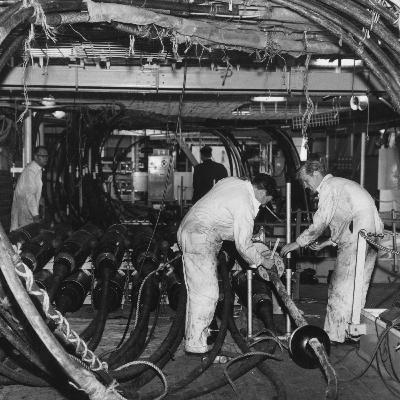


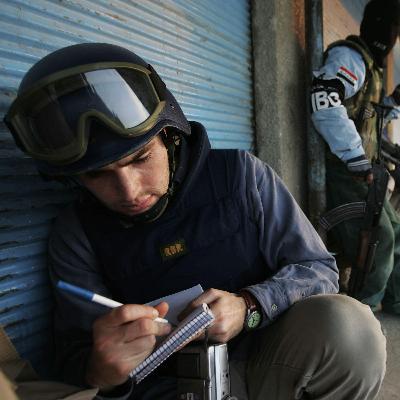



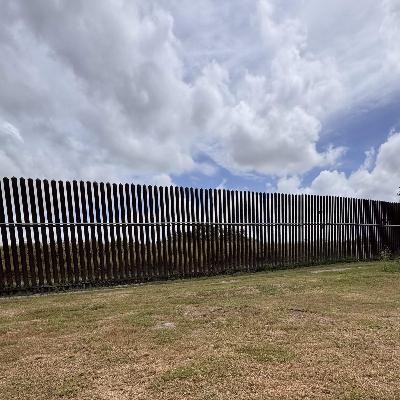
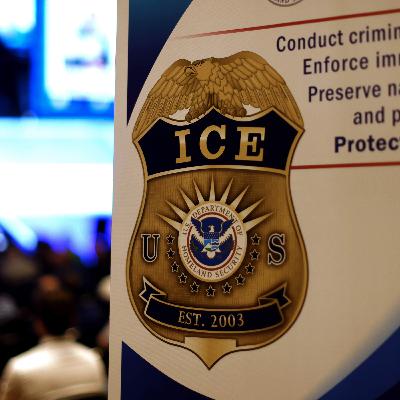

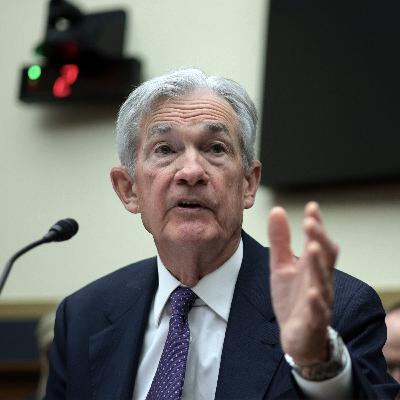

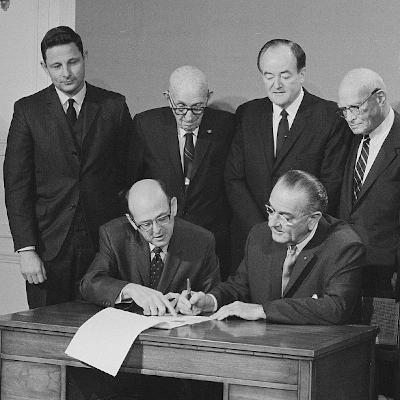
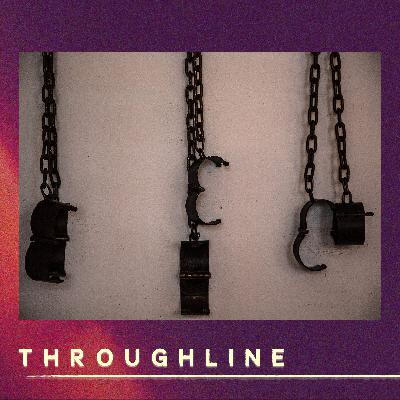

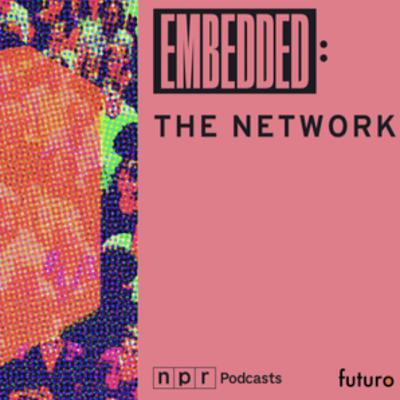

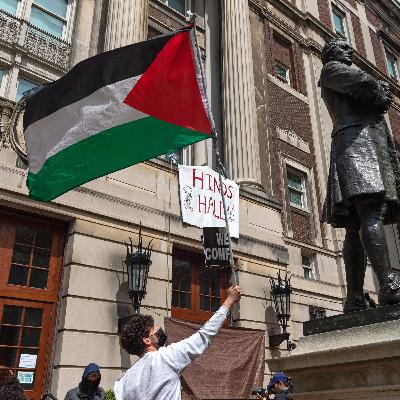



You are only able to cover the right-wing extremists of Israel well because Israel is an open democratic country. But the leaders of Hamas and other terrorist groups hide in the shadows. I wish you would also tell the history of the people behind the horrors inflicted by those who supposedly fight for Palestinian freedom, even though that'd be much more work.
Don't know why I didn't know about this NPR podcast, but I'm thankful that one of the other #NPR podcasts gave a preview of this episode. Based on the wide array of topics, there are lots of excellent episodes that I've just added to my queue.
I was looking for info on Qatar stopovers and found this super helpful. The details about the Qatar Transit Visa are explained well here: https://allaboutqatar.com/qatar-transit-visa/ .
I'm wondering what the point of even talking to that fascist is if you're not going to push back and contextualize his bs. Some liberal exercise in both sideism between democracy and fascism, between cruelty and humanity. I know and expect better from Throughline. This episode looks like executive meddling from NPR was involved.
thank you, so interesting!
just a wonderful podcast and NPR is my CBC American friend. we can't let you sink!
America needs Godzilla right now.
this podcast is bias and indoctrinated. beware who your podcasters are. who writes the narrative.
I teared up at this episode. The fact that she won.
skipping content. my download or is it at source?
I absolutely love how 'Throughline' dives deep into historical contexts to provide fresh perspectives on current events. The storytelling is both engaging and insightful, making complex historical events accessible and relevant. https://podcasters.spotify.com/pod/show/roden-john
I absolutely love how Throughline dives deep into history to connect the dots to our present. The way the hosts present complex topics in such a compelling and engaging manner makes every episode a must-listen. https://www.spreaker.com/episode/eco-friendly-packaging-in-the-food-industry--60716022
Huey Long died 9/10/35, not 9/8/36, as stated in this story
Flagrantly biased. You didn’t speak to a single anti Zionist, or include the antisemitism that fueled European support of the Zionist project. Really embarrassing episode for y’all
I saved this when it came out, now this is my second listen. Thank you!
Good attempt but lacks historical nuance and integrity. The intro fails to highlight the provocations and the role of the PLO in the start of the Lebanese civil war. Furthermore, the shows failed to mention that: - Hezbollah invaded Beirut on May 7, 2008 where weapons were turned inwards. - Hezbollah hampered the investigation into the Beirut Port Explosion
I'm 9 minutes in and waiting for the actual episode to begin, while Throughline and Radiolab hosts gush on and on and on about how fantastic they all are. Couldn't they have done that before recording the episode...maybe just a quick 2 minute intro? I realize you're trying to share audiences with each other, but I think anyone that can skip over this drivel will, like I finally did at the 6 minute mark.
ALL>FUL>MOVIES>LINK👉https://co.fastmovies.org
That song is incredible
This was nauseating.